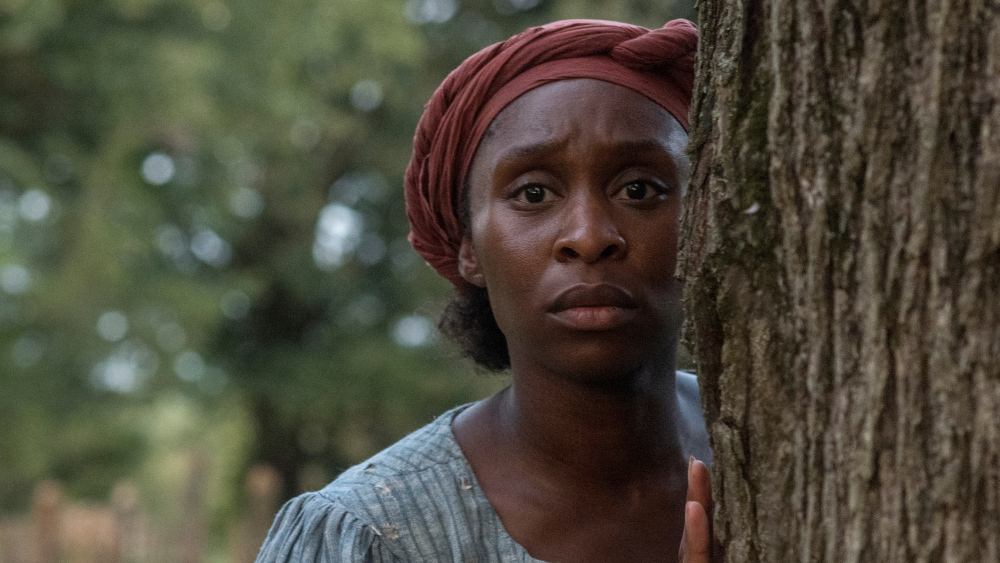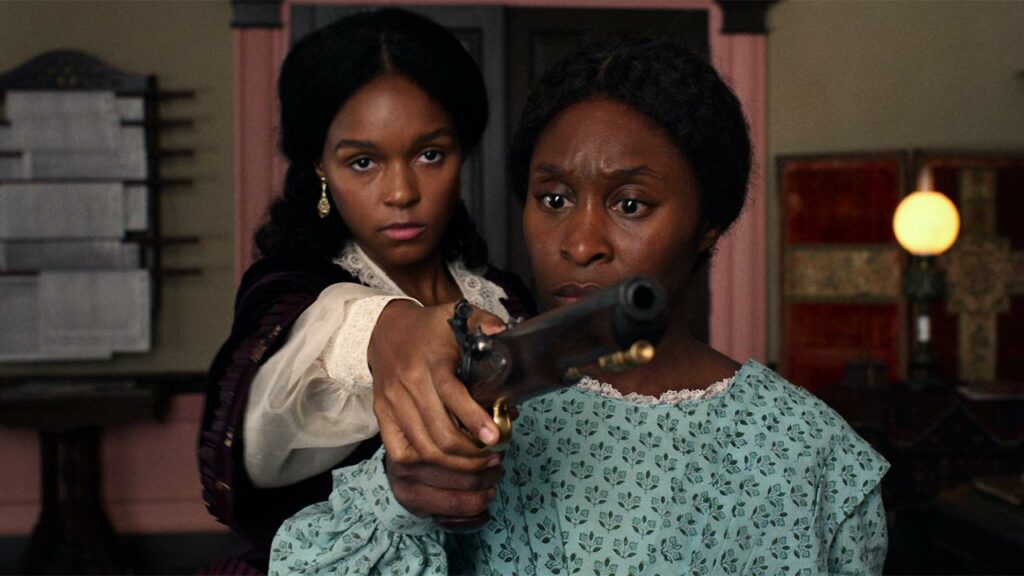 By Jacob Sahms
By Jacob Sahms
The theological depth of Harriet provides open ground for exploration and discussion as the audience tracks the journey of Harriet Tubman, originally Minty Ross, from slavery in Dorchester, Maryland, to becoming a freer of slaves. While the opening scenes show us the unjust delivery of the law in cases where the plantations were run like fiefdoms and not part of the Union in the 1800s, it’s not until the film gets rolling that we can see how deep those theological moments are. Once the theological moments are made available, the parallels between fighting for freedom in the 1850s and the present are evident.
When a black preacher shares the “good news” of the gospel with slaves on a Sunday morning early on in the film, he uses Colossians 3:22 to appeal to their sense of survival and their masters’ sense of appreciation. “Slaves, obey your earthly masters in everything; and do it, not only when their eye is on you and to curry their favor,” he says, “but with sincerity of heart and reverence for the Lord.” Just moments into the film, we have been put on notice: there is faith here but there is also the abuse of faith for power.

Minty prays that God will change her master’s heart, and if not, strike him down dead. Neither happens, but Minty’s physical journey of freedom from Maryland to Philadelphia, PA, is matched by her spiritual one. She’s told by a spiritual leader that “fear is her enemy, so trust God,” so she does. When her arrival in Philadelphia is met with more disbelief, that one woman could have survived the journey herself, she’s again hanging her survival on the power of God to walk with her (“just me and the Lord” through one hundred miles to freedom). Minty-turned-Harriet will later say that the visions she received of the future were God’s tools to prepare her for what was to (or could) come. She knows what it means for God to watch over her, and yet, she’s still willing to go.
That willingness ties her to her mocking, spiritually-infused name given her by slaveholders and land owners, “Moses.” Tubman dispenses points out that “God was watching me but my feet were my own.” Pushed to free her family herself when the liberation movement in Pennsylvania deems it too difficult and dangerous to return to Maryland, Tubman proposes, “If I’m free, then they should be, too.” Tubman isn’t yet an occupational abolitionist, just one who wants to help those she loves. She’s a practical abolitionist, a positive dissident, a faithful servant to God. By the end of her transformation, she will find her purpose in fighting for the cause, and realize truths about freedom and justice for all, not just those she loves.
In the midst of her historical journey criss-crossing the river, Tubman finds herself at odds with people and with situations. Like Moses, she shows others the way through the “sea,” while calling on God for wisdom and direction, in a scene that clearly parallels the journey of Moses and of each Christian who decides to go against the flow. It’s practical theology, in the moment, that Tubman exhibits, and it’s enough to draw others in because they see her prayers answered and recognize her quiet, God-inspired confidence. Set against a white background of casual, “useful” faith, Tubman’s practical faith proves to be the difference.
 All of this is still so timely, nearly two hundred years later. People of faith are still struggling with the words of Scripture as they define how we should live and how we should act. Some still brandish the word of God like a weapon to hold others down or to keep the “other” out; some are quietly living out their faith in the best way they know how, grieving the injustices of the world and moving their feet to stand against them.
All of this is still so timely, nearly two hundred years later. People of faith are still struggling with the words of Scripture as they define how we should live and how we should act. Some still brandish the word of God like a weapon to hold others down or to keep the “other” out; some are quietly living out their faith in the best way they know how, grieving the injustices of the world and moving their feet to stand against them.
Too often though, we are gravely mistaken in our sense of certainty, and fail to recognize the immediate needs of those right in front of us. Harriet is a trumpet cry to action, to embrace the other, to welcome the stranger, to seek after the will of God lest we be guilty of Tubman’s condemnation of the northern abolitionists who expected the law to clean up the issue:
“You’ve been free so long you can’t remember what it’s like to be a slave.”
Only when we submerge ourselves in the river of prayer and fight on across with our feet will we be able to recognize that we too have been set free, and the person rising up with us is our brother.
Harriet debuts in theaters on November 1.




